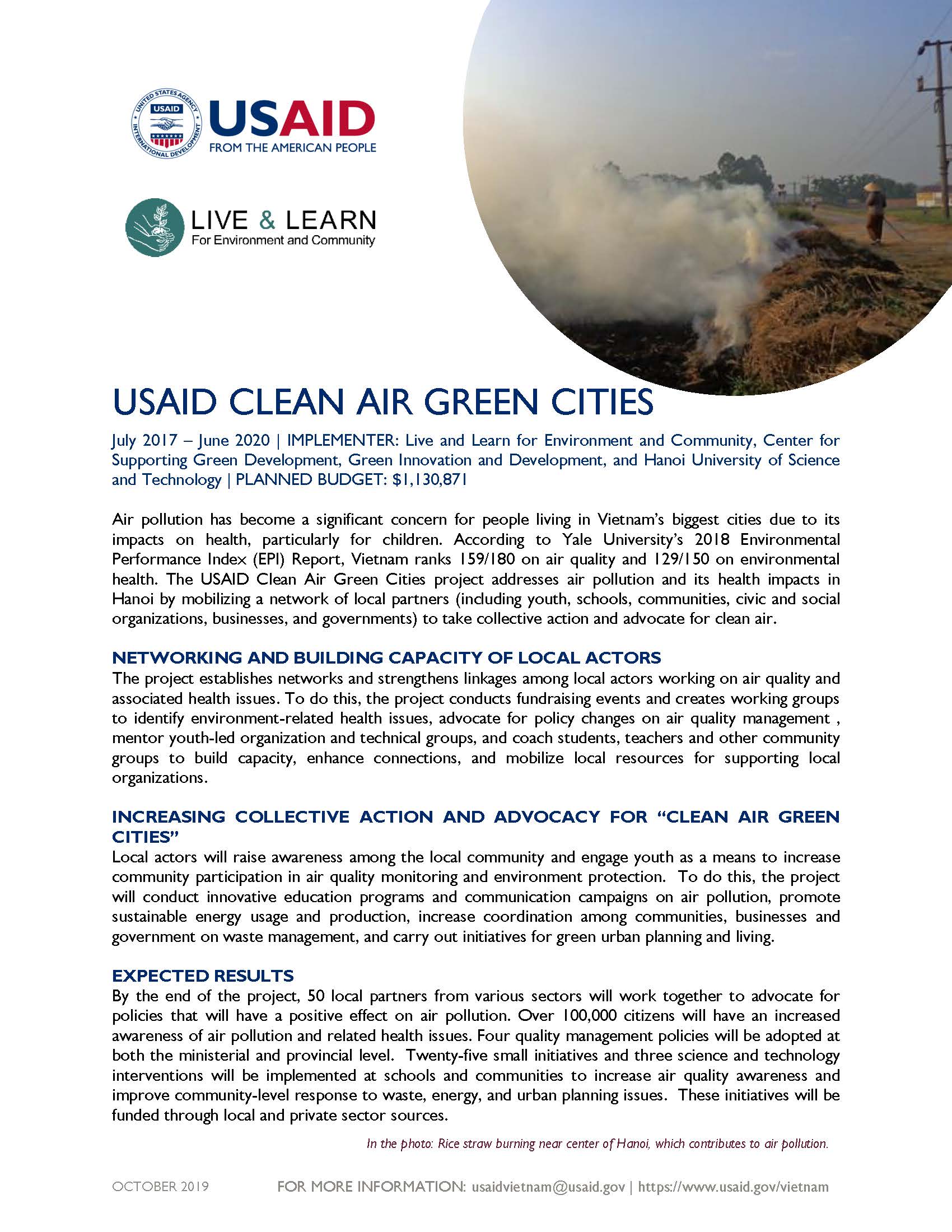Speeches Shim
Air pollution has become a significant concern for people living in Vietnam’s biggest cities due to its impacts on health, particularly for children. According to Yale University’s 2018 Environmental Performance Index (EPI) Report, Vietnam ranks 159/180 on air quality and 129/150 on environmental health. The USAID Clean Air Green Cities project addresses air pollution and its health impacts in Hanoi by mobilizing a network of local partners (including youth, schools, communities, civic and social organizations, businesses, and governments) to take collective action and advocate for clean air.
NETWORKING AND BUILDING CAPACITY OF LOCAL ACTORS
The project establishes networks and strengthens linkages among local actors working on air quality and associated health issues. To do this, the project conducts fundraising events and creates working groups to identify environment-related health issues, advocate for policy changes on air quality management , mentor youth-led organization and technical groups, and coach students, teachers and other community groups to build capacity, enhance connections, and mobilize local resources for supporting local organizations.
INCREASING COLLECTIVE ACTION AND ADVOCACY FOR “CLEAN AIR GREEN CITIES”
Local actors will raise awareness among the local community and engage youth as a means to increase community participation in air quality monitoring and environment protection. To do this, the project will conduct innovative education programs and communication campaigns on air pollution, promote sustainable energy usage and production, increase coordination among communities, businesses and government on waste management, and carry out initiatives for green urban planning and living.
EXPECTED RESULTS
By the end of the project, 50 local partners from various sectors will work together to advocate for policies that will have a positive effect on air pollution. Over 100,000 citizens will have an increased awareness of air pollution and related health issues. Four quality management policies will be adopted at both the ministerial and provincial level. Twenty-five small initiatives and three science and technology interventions will be implemented at schools and communities to increase air quality awareness and improve community-level response to waste, energy, and urban planning issues. These initiatives will be funded through local and private sector sources.


Comment
Make a general inquiry or suggest an improvement.